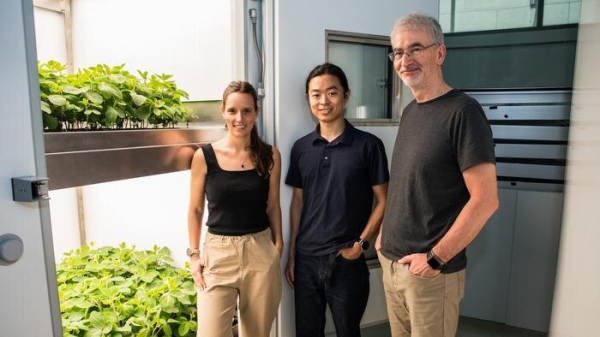Vertical farming can do more than lettuce.
Vertical farming can do more than lettuce. A research team headed by TUMCREATE, a research platform in Singapore, led by the Technical University of Munich (TUM), has investigated the cultivation of six food groups in vertical farming: Crops, algae, mushrooms, insects, fish and cultivated meat. In this study, the researchers show the positive effects of vertical farming on both yield and environmental impact and underline its role in future food security.
Under certain circumstances, traditional agriculture reaches its limits for instance after extreme weather events or in areas with a high population density and thus demand. “Vertical farming is a valuable addition here: Food can be grown close to consumers, independent of the weather and using space efficiently”, explains Dr. Vanesa Calvo-Baltanás, the lead researcher of the publication, working at the TUMCREATE research platform in Singapore. In this study, she and other researchers investigated the potential of vertical farming for food security. The team presents theoretical estimations backed by previously published experimental data. Based on these data, the researchers established a quantitative framework to evaluate the yield and potential environmental impact of controlled environment agriculture, such as vertical farming.
Urban Food Production with Proteins4Singapore
The study offers insights into the potential of various food groups in a 10-layer vertical farming system: crops, algae, mushrooms, insects, fish and cultivated meat. Compared to field crops, these foods can increase the protein yield per area nearly three hundredfold for crops and over 6,000-fold for mushrooms and insects. The study findings show that this total and protein yield increase through controlled environment agriculture systems offers benefits in environmental impact. Across all food groups, controlled environment agriculture reduces the use of land, and eliminates the need for disease measures such as pesticides and antibiotics.
Read more at Technical University of Munich (TUM)
Image: Vertical farming team, Dr Vanesa Calvo-Baltanas, PhD candidate Jooseop Park and Prof. Senthold Asseng with one of the vertical farm units dedicated to the cultivation of soybean at TUMCREATE, Singapore. (Credit: Israel Tan Si Lie/TUM)




